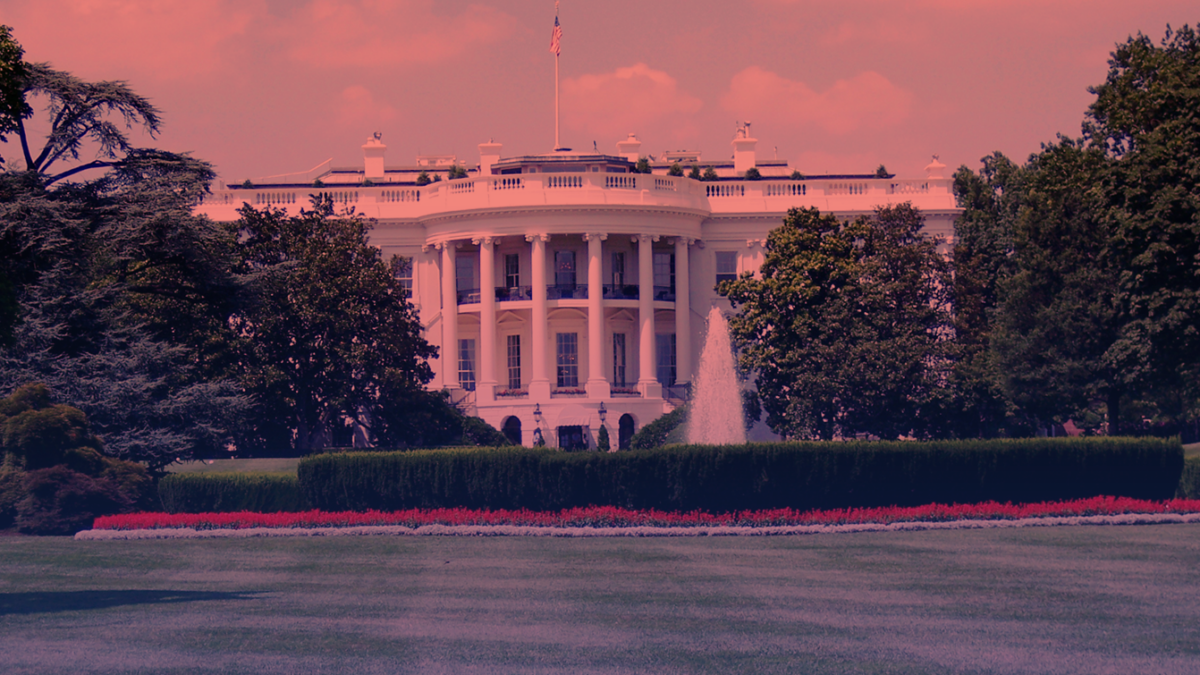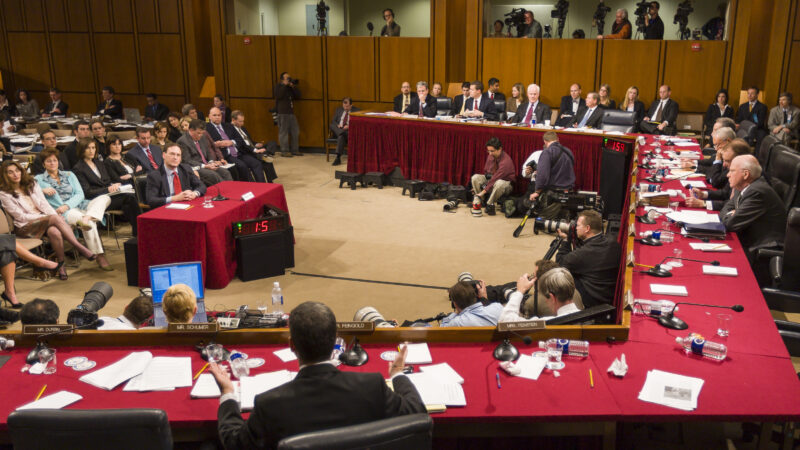Deana Kim El-Mallawany oversees Protect Democracy's work to prevent the threat of another autocratic presidency from dismantling our democracy, as well as its long-term work to drive the structural change needed to secure the multi-racial democracy of tomorrow.
Legal Challenges to an Invocation of the Insurrection Act: A Primer
- July 1, 2020

In early June 2020, President Trump said that he is willing to use his power under the Insurrection Act to deploy the military to quell protests and turn American streets into “battlespaces.” Although President Trump did not follow through with his threat to use the military in this way, his statements and administration’s unprovoked use of force against peaceful protestors to facilitate a politically favorable photo op in DC’s Lafayette Square rang alarm bells.
Between now and November, there is a strong possibility of protests and civil unrest involving escalation between civilians and law enforcement. President Trump could use such conditions to invoke or threaten to invoke the Insurrection Act with the purpose or effect of interfering with the election. Given President Trump’s pattern of abusing power to advance his own narrow political interests, it’s not an unlikely scenario.
If President Trump unlawfully invokes or threatens to invoke the Insurrection Act, states can challenge this abuse of power in court. Protect Democracy has analyzed two primary sets of claims:
- a claim against the president directly for violating the Insurrection Act and
- claims against the president for constitutional violations arising from his invocation of
the Insurrection Act.
Our analysis addresses the threat of an Insurrection Act invocation in an election scenario, but its reasoning may apply to other situations such as future protests unrelated to the election.
Legal Framework. In our constitutional system, the president has only the powers that the Constitution specifically enumerates or that Congress lawfully delegates to him. Significantly, the Constitution reserves to Congress the authority to legislate how the militia may be deployed domestically. As a general matter, Congress has prohibited the use of the military for domestic purposes, as through the Posse Comitatus Act. Congress, however, has permitted exceptions to this rule through laws such as the Insurrection Act, which authorizes the president to deploy the military domestically under specific circumstances.
Legal Claims. A legal challenge to an improper use of the Insurrection Act would be strongest where the facts indicate that the president fabricated an “insurrection” to justify deployment of troops to interfere with the November election or otherwise quash dissent or gain political advantage. Chances of success decrease the more the facts suggest that the existence of an “insurrection” that impedes the enforcement of law is plausible and that the president could have been acting in the public interest. In that case, a court would likely defer to the president’s judgment that circumstances triggering his statutory authority have arisen.
First, the president would violate the law if he exceeds the Insurrection Act’s scope or invokes the Act in bad faith.
Statutory Limitations. A state could challenge the president’s invocation of the Insurrection Act where the facts objectively defy the president’s determination that exigencies exist necessitating military force. The Insurrection Act cannot be interpreted to give the president boundless discretion to deploy troops domestically because such an interpretation would allow the Insurrection Act to nullify the Posse Comitatus Act as it applies to the president. An exception cannot be read to swallow the rule. The key terms of the Insurrection Act, therefore, should confine the president’s exercise of his power to cases of actual insurrection, or similar domestic uprising specified in the Act, that actually impede enforcement of the law. Largely peaceful protests, for example, do not amount to a triggering event under the Act, even when directed at civil authorities. A reading of the Insurrection Act that allowed the president to deploy troops domestically without meaningful limitation would arguably render the Act unconstitutional because it would transfer legislative powers to the president.
Bad Faith. Suppose facts unfold that suggest the president’s invocation of the Insurrection Act is based on political motives, rather than a good faith belief that military force is needed to head off an insurrection. This would likely violate a good faith limitation that courts have recognized on the president’s authority to deploy the military domestically. Although the Insurrection Act
has been interpreted to give the president a discretionary power that he may exercise upon his own judgment that an exigency exists, an egregious showing of bad faith could persuade a court to detach the president’s invocation of the Insurrection Act from the deference it would traditionally enjoy.
Second, the president’s use of the Insurrection Act may violate the Constitution.
First Amendment. A state could assert that the president’s use of the Insurrection Act was for an improper motive in violation of the First Amendment: namely, to quell a constitutionally protected peaceful protest, or to retaliate against constitutionally protected protests. Even if the president’s domestic use of the military would be otherwise lawful under the Act, it would be rendered unlawful if done for an unconstitutional motive.
Equal Protection. A state could assert that the President has used the Insurrection Act in a manner that violated the Constitution’s equal protection guarantees. The simplest version of this claim would be if the president or other senior administration officials (such as the Attorney General) made statements indicating that they were using the Act to suppress protesters of a particular race. Such an action would violate equal protection principles.
Faithful Execution. The president has a constitutional duty to “take Care that the Laws be faithfully executed.” If the president uses the Insurrection Act in bad faith, he violates this duty. He also violates this duty if he uses the Insurrection Act to deploy troops for an improper motive, such as in retaliation for a state’s perceived support of his political opponents or because of the protesters’ political beliefs.
Due Process. If the president deploys troops in a manner that interferes, or could interfere, with an election being fundamentally free and fair, such use of troops could violate due process.
Constitutionality of the Insurrection Act itself. If the Insurrection Act is read to allow the president to deploy troops domestically without limitation, a state could challenge the Insurrection Act as an unconstitutionally broad delegation of legislative power to the executive. A state could also challenge the president’s use of the troops under the Insurrection Act’s “domestic violence” provision in 10 U.S.C. § 253 because the Constitution’s Republican Guarantee Clause arguably requires a state’s consent (through “Application of the Legislature” or governor) to deploy troops. In passing the Posse Comitatus Act, Congress enshrined the bedrock democratic principle that using the military to regulate civilians is an affront to liberty. The Insurrection Act carves out a limited exception to the rule and cannot be interpreted to give the president boundless discretion to deploy troops domestically.
Read or Download the full White Paper Read or Download the full White Paper
Related Content
Join Us.
Building a stronger, more resilient democracy is possible, but we can’t do it alone. Become part of the fight today.
Donate
Sign Up for Updates Sign Up for Updates
Explore Careers Explore Careers
How to Protect Democracy How to Protect Democracy


